

A Colorado rental agreement is a legal contract between a landlord overseeing a rental property and a tenant who wishes to use it. Colorado landlord-tenant law governs these agreements; rental terms must be within the limits allowed by law.
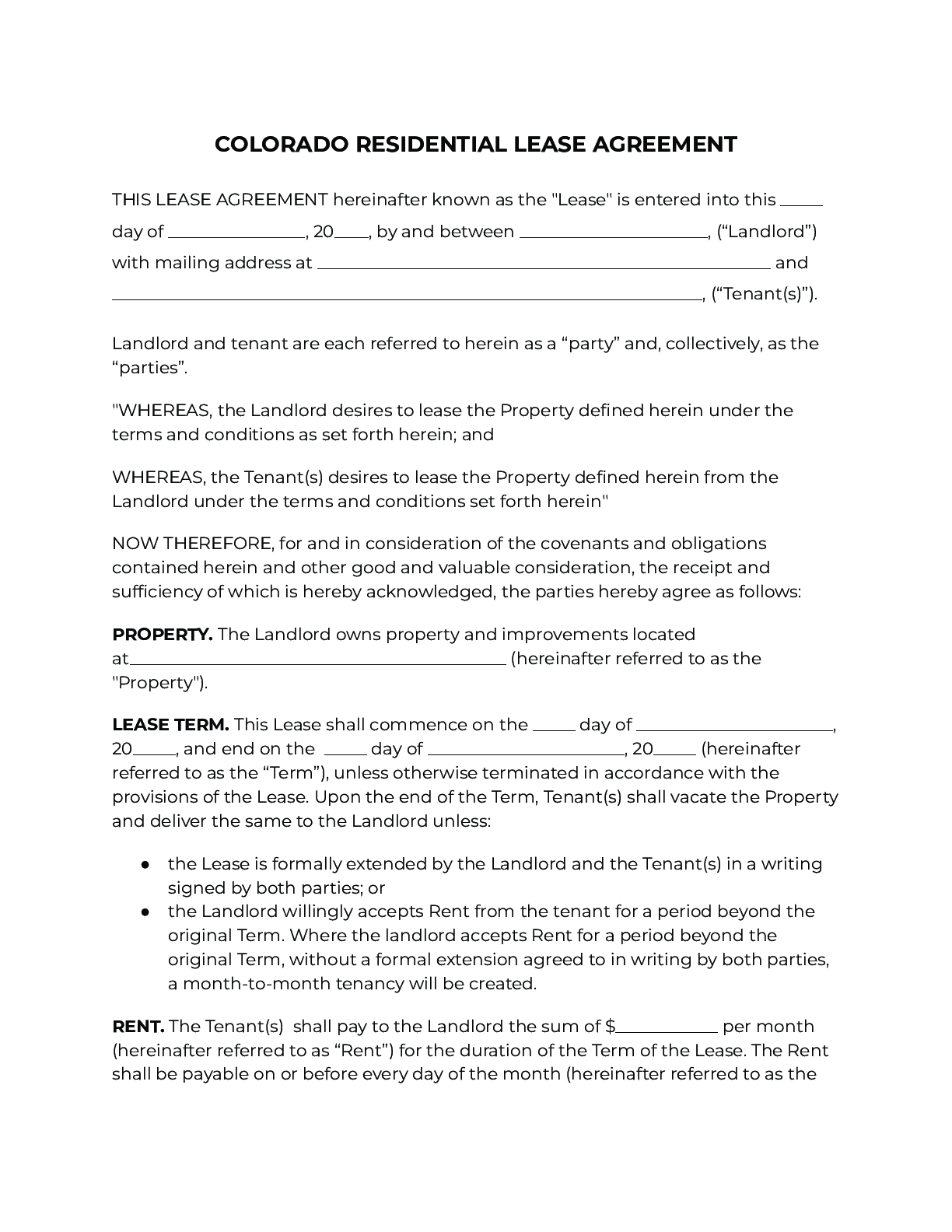
A Colorado residential lease agreement (“rental agreement”) is a legal contract for a tenant to rent a residential property from a landlord, subject to terms and conditions agreed by all parties.
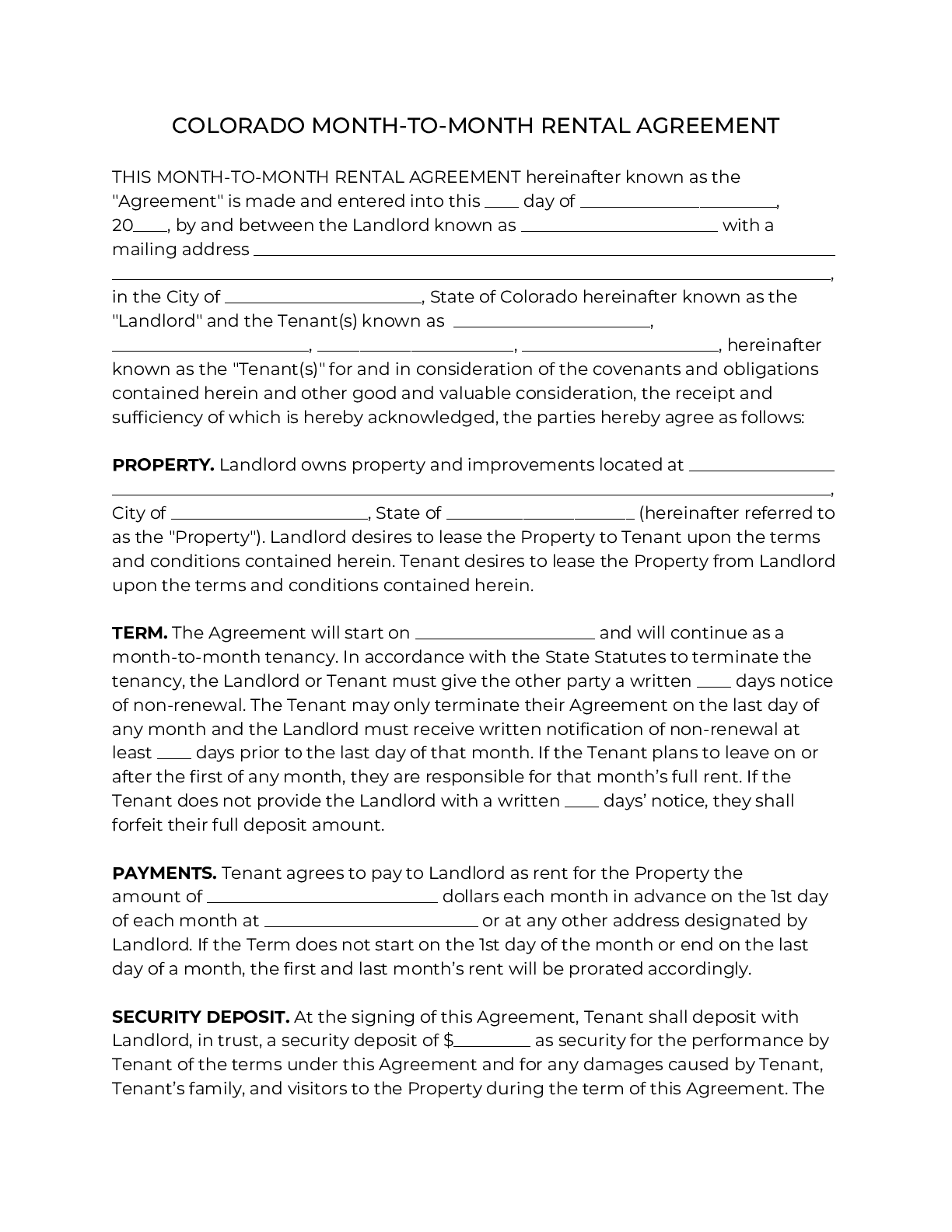
A Colorado month-to-month lease agreement is a contract (not necessarily written) where a tenant rents property from a landlord. The full rental term is one month, renewable on a month-to-month basis.
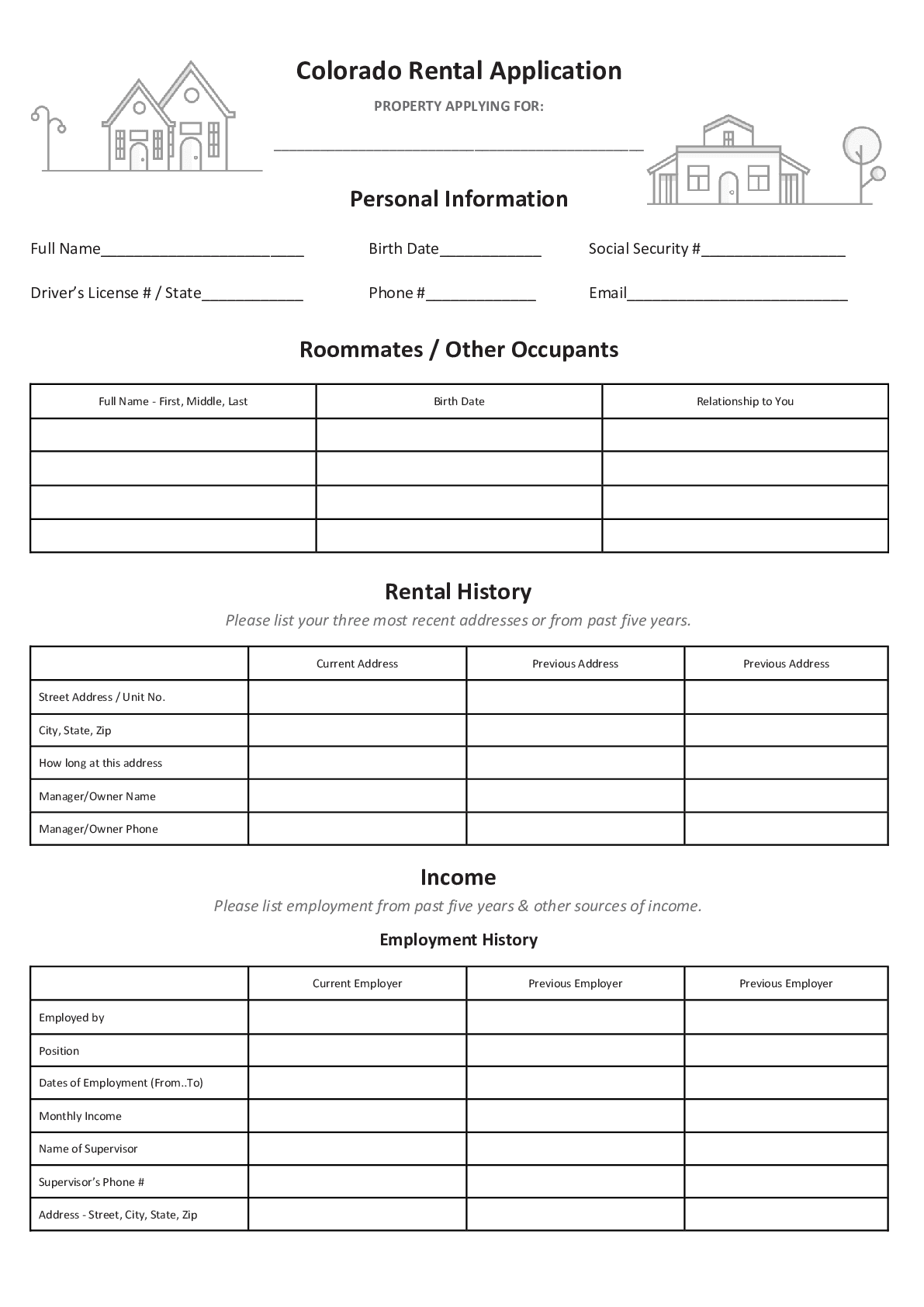
Colorado landlords may use a rental application form to screen prospective tenants. A rental application collects information relating to finances, rental history, and past evictions.
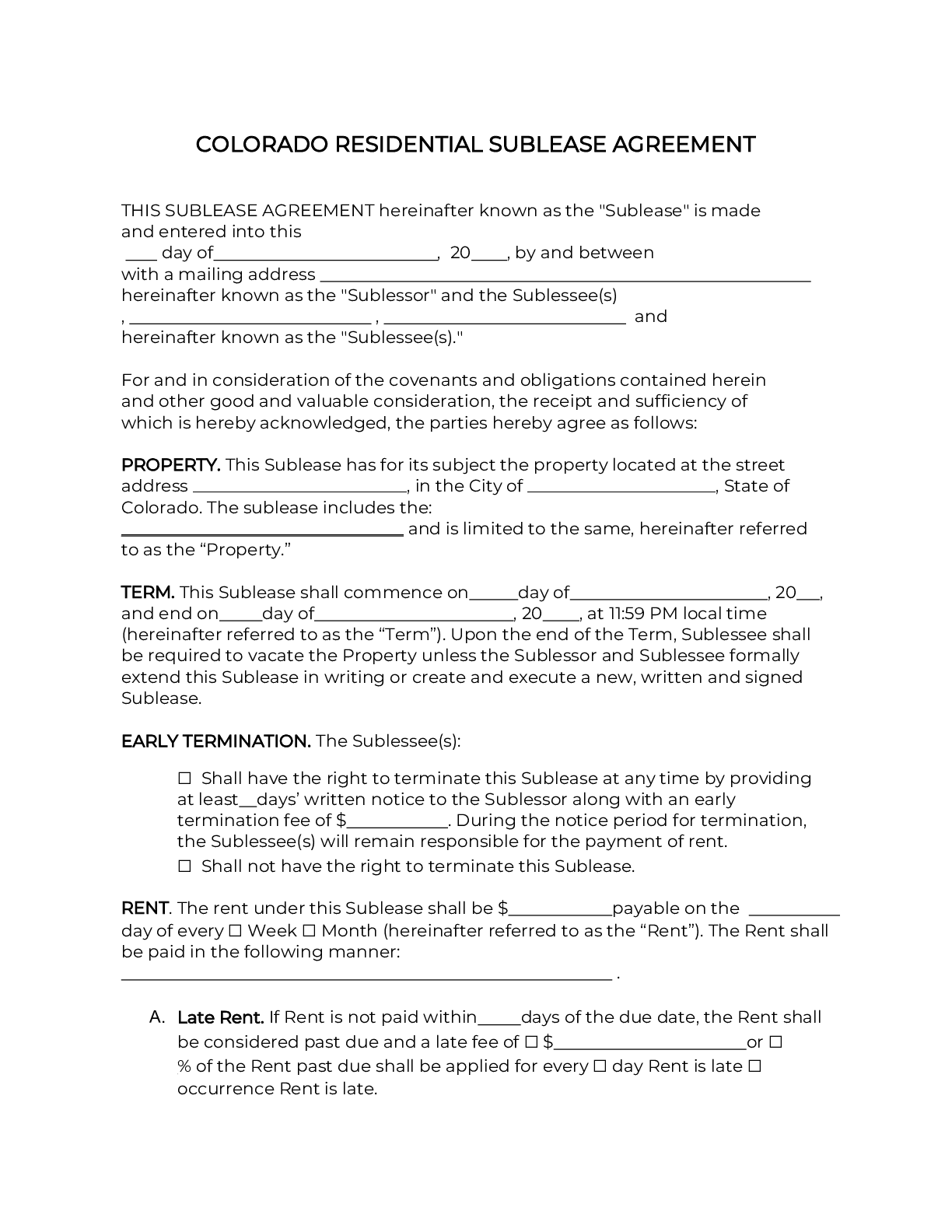
A Colorado sublease agreement is a legal contract where a tenant ("sublessor") rents (“subleases”) property to a new tenant (“sublessee”), usually with the landlord’s permission.
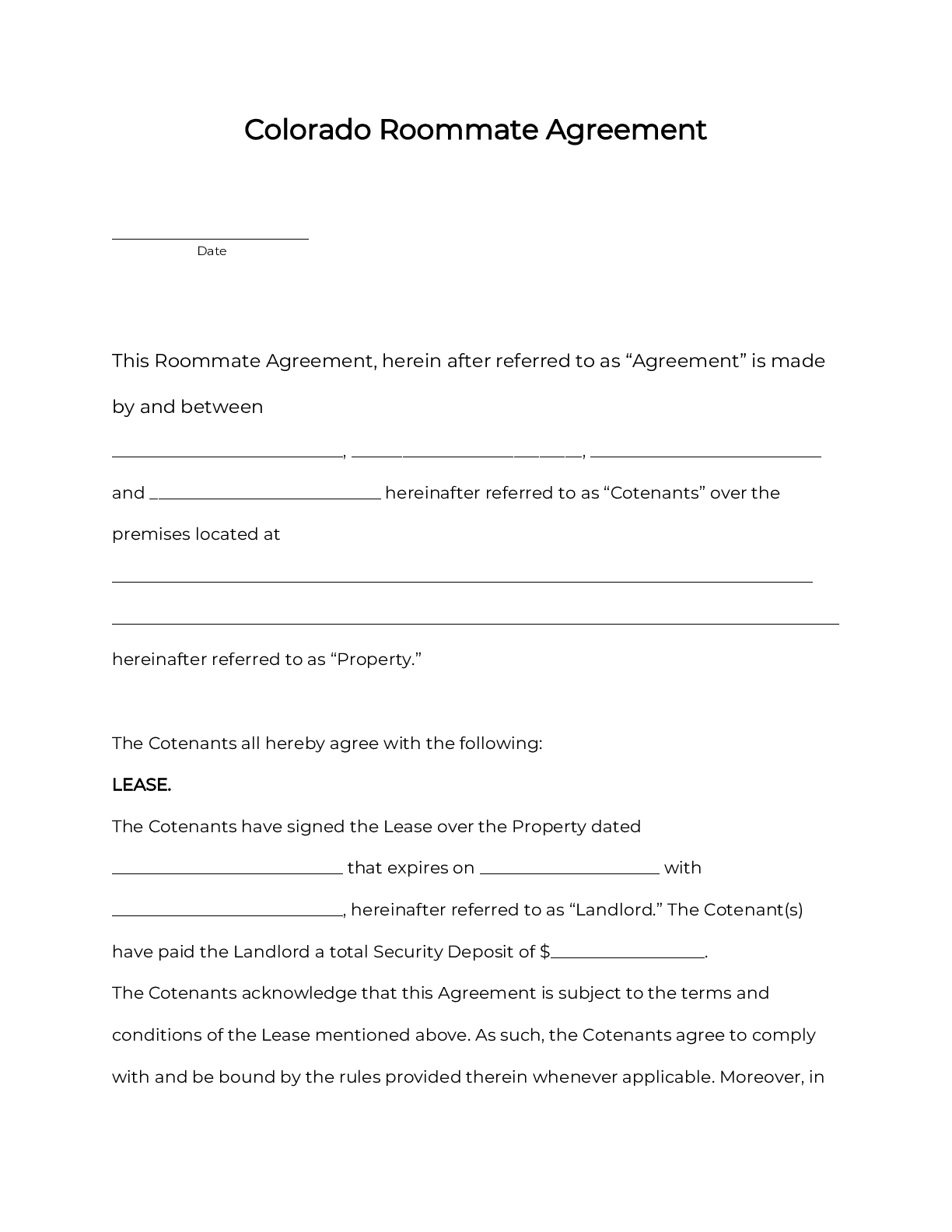
A Colorado roommate agreement is a legal contract between two or more people (“co-tenants”) who share a rental property according to rules they set, including for things like splitting the rent. This agreement binds the co-tenants living together, and doesn’t include the landlord.
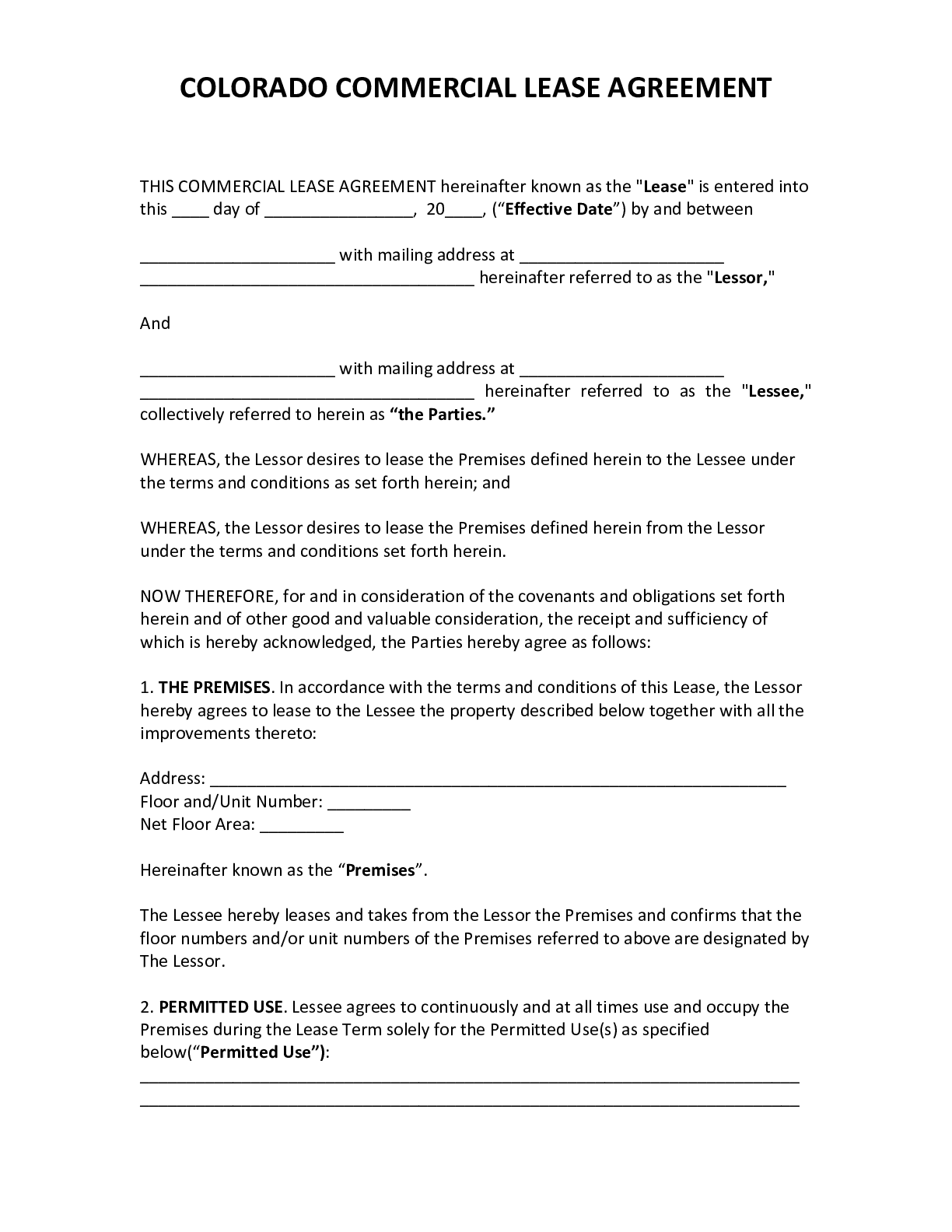
A Colorado commercial lease agreement is a legal contract arranging the rental of commercial space between a landlord and a business.
To learn more about required disclosures in Colorado, click here.
Some Colorado cities, like Denver and Colorado Springs, may require additional disclosures. Local laws may apply, not just state laws.
To learn more about landlord tenant laws in Colorado, click here.
A written rental agreement must include a statement indicating to the tenant the name and address of the person who is the landlord or the landlord’s authorized agent. If the identity of a landlord or a landlord’s authorized agent changes, the new landlord or authorized agent, not later than one business day after such change, shall:
(a) Provide each tenant of the landlord written or electronic notice of the change; or (b) Post the identity of the new landlord or new authorized agent in a conspicuous location on the residential premises.
Before signing a lease agreement for residential real property, the landlord shall disclose and provide in writing to the tenant the following information in a document that the tenant signs to acknowledge receipt of the disclosure:
(I) A warning statement in bold-faced type that is clearly legible in substantially the same form as is specified as follows:
The Colorado Department of Public Health and Environment strongly recommends that ALL tenants have an indoor radon test performed before leasing residential real property and recommends having the radon levels mitigated if elevated radon concentrations are found. Elevated radon concentrations can be reduced by a radon mitigation professional.
Residential real property may present exposure to dangerous levels of indoor radon gas that may place the occupants at risk of developing radon-induced lung cancer. Radon, a Class A human carcinogen, is the leading cause of lung cancer in nonsmokers and the second leading cause of lung cancer overall. A landlord is required to provide the tenant with any known information on radon test results of the residential real property.
Before signing a lease agreement for residential real property, the landlord shall disclose and provide in writing to the tenant the following information in a document that the tenant signs to acknowledge receipt of the disclosure:
(II) Any knowledge the landlord has of the residential real property’s radon concentrations, including the following information:
(A) Whether a radon test or tests have been conducted on the residential real property; (B) The most current records and reports pertaining to radon concentrations within the residential real property; (C) A description of any radon concentrations detected or mitigation or remediation performed; and (D) Information regarding any radon mitigation system, including a system description and documentation, if a radon mitigation system has been installed in the residential real property; and (III) A copy of the most recent brochure published by the department of public health and environment in accordance with section 25-11-114 (2)(a) that provides advice about radon in real estate transactions.
(a) A written rental agreement must include a statement that section 24-34-502 (1) prohibits source of income discrimination and requires a non-exempt landlord to accept any lawful and verifiable source of money paid directly, indirectly, or on behalf of a person, including income derived from any lawful profession or occupation and income or rental payments derived from any government or private assistance, grant, or loan program. (b) This subsection (2.5) does not apply to a landlord with five or fewer single-family rental homes and no more than five total rental units including any single-family homes.
“A landlord of a property covered by the CARES Act must give thirty days’ notice before filing for FED [i.e., eviction] in Colorado.”